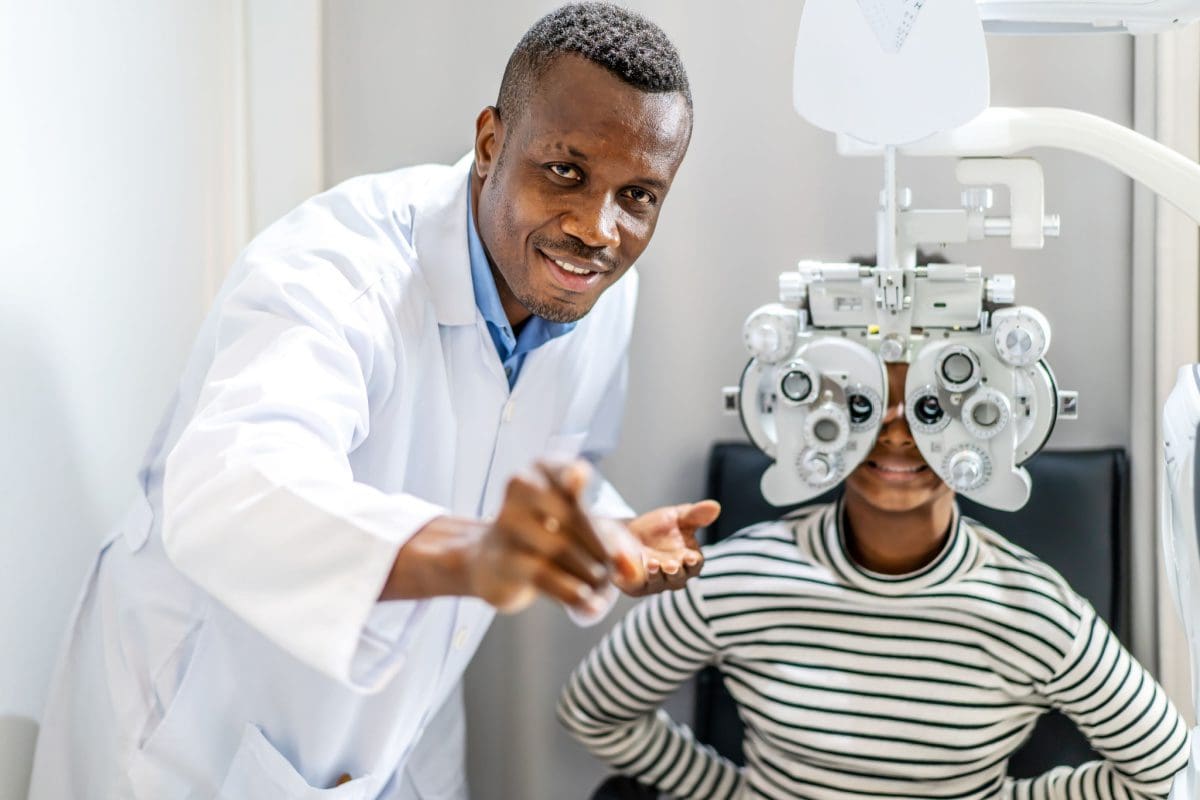Is Refractive Surgery Right for You? Variables to Think About for Better Eyecare
In the world of eye treatment, the decision to go through refractive surgical procedure is a crucial one that requires thoughtful factor to consider. From the details of one's eye wellness to the details of individual expectations and everyday routines, each element holds importance in the wider landscape of refractive surgical treatment candidacy.
Eye Health Evaluation
When thinking about refractive surgical treatment, an extensive eye health and wellness examination is vital to examine the viability of the procedure for every person. eye center andalusia. This evaluation involves a collection of examinations and assessments conducted by an eye care professional to determine the overall health of the eyes, the presence of any type of hidden conditions, and the security of the refractive error
Throughout the assessment, various aspects are thought about, such as the patient's clinical history, existing eye prescription, corneal thickness, student size, and tear movie quality. These analyses help to recognize any type of contraindications to refractive surgical procedure, such as corneal irregularities, cataracts, or neglected eye infections. Additionally, the analysis aids to manage individual assumptions relating to the prospective results of the surgical treatment based upon their one-of-a-kind eye qualities.
Ultimately, the eye health and wellness examination is essential in guaranteeing the security and performance of refractive surgical procedure, as it provides important insights into the person's eye wellness standing and aids determine the most suitable treatment choices for accomplishing ideal aesthetic results. (neurologist andalusia)
Lifestyle Assessment
An extensive way of life evaluation is important in figuring out the viability of refractive surgical procedure for a person's aesthetic modification demands. Way of living aspects such as profession, pastimes, and everyday activities play an essential role in the decision-making procedure pertaining to refractive surgical procedure. For example, individuals with professions that involve a high level of exercise or exposure to environmental elements might have different visual requirements contrasted to those with less active workdesk jobs. Recognizing exactly how a person's way of living may influence their vision post-surgery is crucial for handling expectations and making certain ideal outcomes.
Furthermore, way of life practices such as sporting activities engagement, exterior activities, or even skin care regimens can influence the healing procedure and general success of refractive surgical treatment. Individuals that involve in contact sports may require to take added preventative measures to protect their eyes during the recuperation duration. Additionally, individuals with comprehensive sun direct exposure might call for added post-operative like prevent problems. By carrying out a comprehensive lifestyle evaluation, eye care experts can tailor their recommendations and treatment plans to satisfy the special requirements of each individual, inevitably bring about boosted aesthetic end results and satisfaction.
Assumption Placement

Setting realistic assumptions includes complete pre-operative conversations between the patient and the eye doctor. The cosmetic surgeon should transparently connect the prospective risks, advantages, and restrictions of the procedure (andalusia pediatrics). Patients require to comprehend that while many people achieve 20/20 vision or far better complying with refractive surgery, some might still need glasses for certain tasks like reading or driving at evening. Handling these assumptions assists prevent dissatisfaction and discontentment post-surgery, leading to a much more positive general experience for the patient.
Threat Evaluation

Variables that may raise the danger of difficulties include age, particular medical conditions like autoimmune conditions, unstable vision prescription, thin corneas, and impractical client assumptions. Additionally, selecting a experienced and seasoned surgeon, complying with pre and post-operative treatment instructions vigilantly, and divulging any relevant case history can help reduce threats.
To decrease the possibility of difficulties, eye doctors conduct comprehensive pre-operative evaluations to recognize any contraindications to surgery. They additionally go over the prospective threats and advantages with clients during the consultation process. By participating in open interaction and shared decision-making, both the eye doctor and the person can collaborate to determine if refractive surgery is the ideal choice based on individual threat profiles and preferred end results.
Consultation Relevance
Taking into consideration the critical function of educated decision-making in analyzing dangers and prospective issues in refractive surgical procedure, the assessment procedure holds substantial importance in assisting patients in the direction of optimum results. During the examination, the ophthalmologist examines the individual's eye wellness, refractive mistakes, and total suitability for surgical procedure. This initial assessment is crucial in determining one of the most appropriate procedure for each and every individual, taking into consideration variables such as corneal density, pupil dimension, and existing eye conditions.
Moreover, the appointment works as an opportunity for individuals to discuss their assumptions, issues, and any concerns they may have pertaining to the surgical treatment. Clear interaction between the cosmetic surgeon and the person is important to guarantee practical expectations and a thorough understanding of the possible risks and benefits entailed.
Furthermore, the appointment allows the specialist to explain the different medical options offered, their respective results, and the post-operative treatment called for. This extensive discussion empowers people to make educated choices regarding their eye treatment, Visit Website causing better contentment and outcomes post-surgery.
Conclusion
To conclude, people considering refractive surgical treatment needs to undergo an extensive eye health and wellness analysis, assess their lifestyle routines, straighten their assumptions with possible end results, analyze the involved dangers, and focus on appointments with eye treatment specialists. These factors play an important function in figuring out the viability of refractive surgical procedure for each and every person, making certain optimum end results and satisfaction with the treatment.
Patients considering refractive surgery often have high expectations regarding the end results, anticipating excellent vision without the demand for glasses or get in touch with lenses. While refractive surgical treatment can considerably enhance vision and decrease dependency on aesthetic help, it is vital for people to recognize that outcomes may vary based on individual variables such as the level of refractive error, corneal thickness, and total eye health and wellness.
By engaging in open interaction and shared decision-making, both the person and the eye doctor can function together to determine if refractive surgical procedure is the ideal choice based on specific danger profiles and wanted results.
Considering the essential function look here of informed decision-making in analyzing dangers and possible issues in refractive surgery, the appointment process holds substantial value in guiding individuals towards optimum outcomes. Throughout the consultation, the eye doctor evaluates the individual's eye health, refractive errors, and total suitability for surgical procedure.